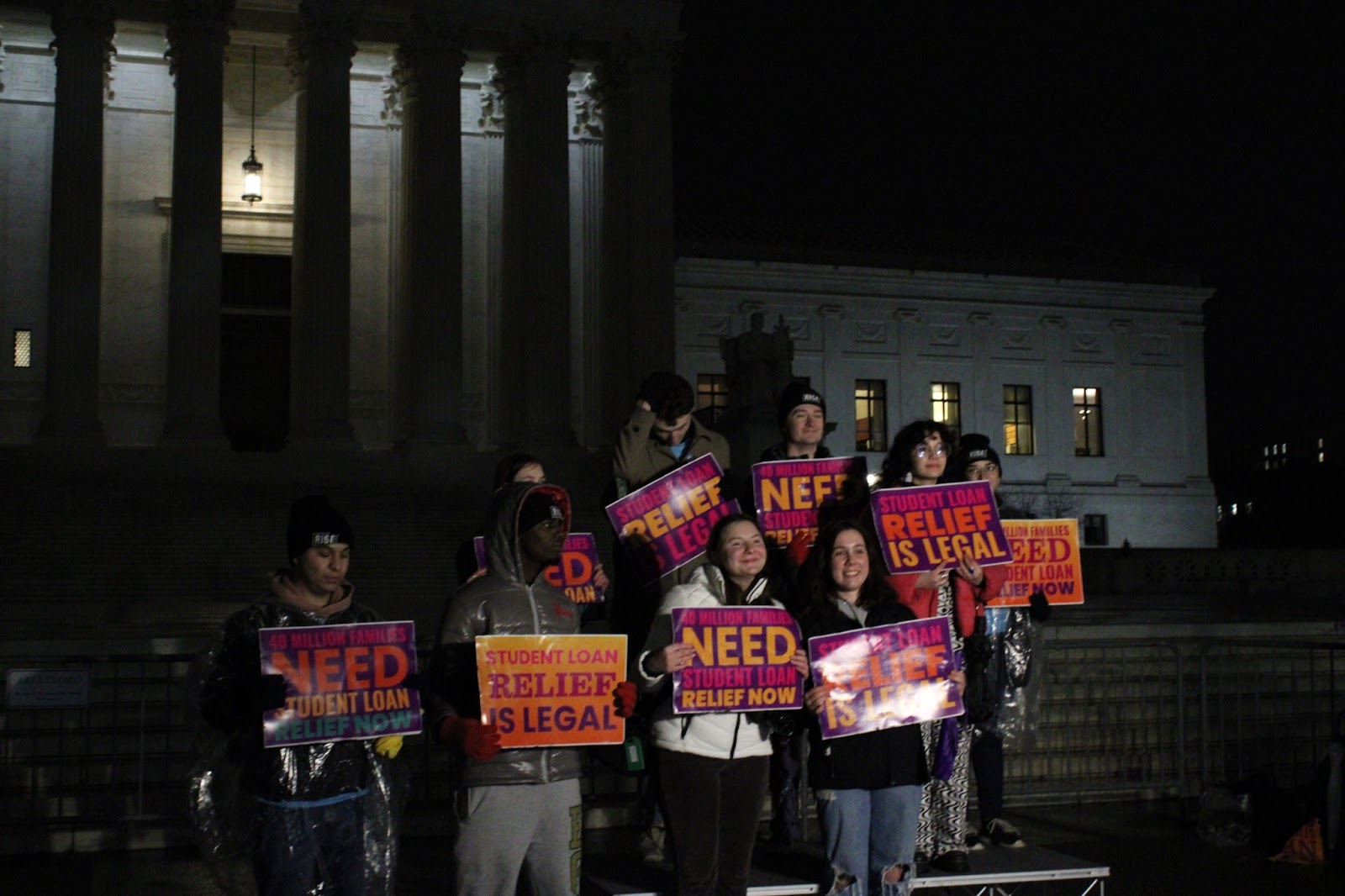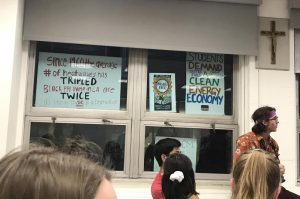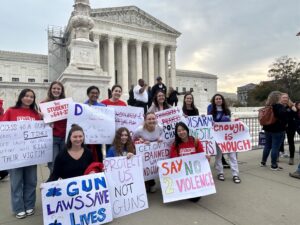On the evening of Feb. 27, around 100 protesters gathered in the rain to advocate for student debt relief outside the Supreme Court. The protest took place the night before the Court heard arguments challenging President Joe Biden’s plan to wipe out $400 billion in student debt. Protesters urged the court to recognize the legality of Biden’s plan while advocating for more radical education reforms, such as making college free for all.
Nearly a dozen protesters held yellow and purple signs reading “Student loan relief is legal” and “40 million families need student debt relief now.” Before them, speakers including Massachusetts Senator Edward Markey, New York Congressman Jamaal Bowman, Michigan Congresswoman Rashida Tlaib, Chief of Staff for the Young Democrats of America Matt Royer, and various student organizers shared their personal experiences with student debt and the importance of Biden’s legislation.
“I’m a sitting member of Congress, and I barely made a dent in my student loans,” Bowman said. The speakers all brought up the disconnect between the societal push for self-improvement and community service and the lack of resources and support available to first-generation and low-income college students.
As protesters arrived, a small band played marching band music. There were also performances from the George Washington University Pitches and a mariachi band, who serenaded the audience as protesters and speakers huddled under brightly colored umbrellas. Bowman and Tlaib took turns holding an umbrella for each other before handing it off to a student demonstrator.
Tlaib told a story about a citizen who expressed frustration with student debt: “Who’s going to want to have a future when I have this much debt,” she quoted the citizen as saying. “All I wanted to do was come back to the community and serve them with my degree.”
In between speeches from politicians and musical performances, storytellers from the nonprofit Rise gave short speeches. Many in the crowd were from the student-led organization, which advocates for affordable education, student loan debt relief, and student voting rights.
“I carry a heavy load,” one student storyteller read a poem she had written. “It follows me where I go. It reminds me of the past and not of the good days I had. Rather, it is the debris from a degree intended to open doors. It is the binding contract that solemnly swears to keep my masters, my hard work, my creativity, my achievement.”
“They tell us we need money and education in order to be successful in this society, and then give us improper tools to put all the pieces together,” another student storyteller said in her speech. “As someone with a background in financial instability, I want to change some of the things from my childhood. But am I really able to do that with over $60,000 in debt hanging over my head?”
As the night went on, temperatures dropped to 40 degrees and the rain intensified. Organizers offered hot cocoa to protesters, and next to the speakers was a table piled with GoPuff bags, pizza boxes, and donuts available to the crowd.
Student activist and speaker Sinyetta Hill, a senior at UW-Milwaukee, described student debt as a generational curse. “I don’t want my children to have to deal with things like that,” Hill said. “When I graduate college, I’m gonna have to pay $20,000 back. How am I gonna pay for it? I’m a low-income student. I come from a low-income family. I didn’t come from any generational wealth. So I’m out here in hopes of making our leaders listen to us, making the Supreme Court listen to us. We’re out here in the cold – it’s freezing out here. They’re gonna know how dedicated we are.”







